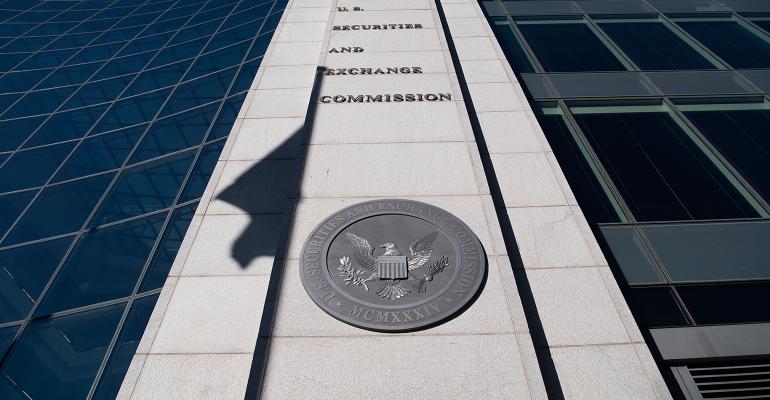The Fifth Circuit Court of Appeals decision to strike down SEC’s Private Fund Adviser Rules, including the requirement for stringent quarterly reporting, was greeted with criticism by some parts of the financial services industry. If enacted, the rules would have required registered advisors offering clients private funds to provide greater transparency into their fee structures and practices. In delivering the court’s opinion, the three presiding judges noted that a private fund advisor’s client is the fund itself, not the underlying investors. As a result, as long as the advisors follow the rules governing the fund, they are not breaking any laws.
However, with the Fifth Circuit putting into doubt the SEC’s authority to enforce these rules, it’s unlikely the agency will be able to prevail even if it appeals the court’s decision, according to Igor Rozenblit, managing partner with consulting firm Iron Road Partners.
In a LinkedIn post in the wake of the court’s decision, Rozenblit wrote that the SEC’s rules were “clunky” and expensive to implement, which is largely what led to them being challenged.
“However, the overly broad Fifth Circuit decision may not be as much of a positive as it seems, at least not for private equity,” he wrote. “Sophisticated investors believe that they do not have sufficient transparency into the operations of private equity advisors and have relied on SEC oversight for reassurance. Now, part of that oversight may be stripped away, increasing the perceived riskiness of the asset class.”
Anya Coverman, president and CEO of the Institute for Portfolio Alternatives, said while transparency is crucial to build investors’ confidence in private funds, the SEC’s rules would make it challenging to close new funds, alter the co-investment market and add unnecessary costs and disruptions to the process for both fund managers and investors. As a result, IPA views the court’s decision as a win for the industry.
"We believe that the rules would have increased costs for investors, so we view the decision as a win for competitiveness, lower costs and efficiency,” Coverman wrote in an email response to WealthManagement.com. “But we acknowledge that some investors will view the decision as a setback, and we want to work with those investors to try to find more tailored win-win solutions to address their concerns.”
Coverman added that IPA recognizes the SEC currently has a “very active rulemaking agenda” and wants to be engaged in an active dialogue with the agency to find solutions that benefit all involved.
Meanwhile, Rozenblit said the legal decision may have a limited impact on whether advisors opt to comply with the SEC’s guidelines. He brought up a legal case from 2006 when the Appeals Court struck down a rule that required hedge funds to register as RIAs. Despite the ruling, few hedge fund advisors gave up their registration. Since both the advisors and the investors saw benefits to following the SEC’s Hedge Fund rule, advisors continued to comply with it. Rozenblit expects to see a similar pattern with the Private Fund Adviser Rules.
This view is supported by the fact that the Institutional Limited Partners Association, which represents limited partner investors in private equity, reiterated its commitment to creating its own updated quarterly reporting standards. ILPA promised to provide an update on its efforts in the coming days.
In an official statement, the organization expressed its disappointment that the Fifth Circuit ruling removes any meaningful requirements for transparency, the disclosure of advisors’ potential conflicts of interest and fund performance information regarding private funds.
“With today’s ruling and the absence of minimum mandated standards, private funds will be under no obligation to provide critical information related to the fees and expenses charged to fund investors and meaningful performance information, leaving LPs to negotiate for terms that should be commonsense,” said ILPA CEO Jennifer Choi. “We are also disappointed that the Fifth Circuit did not acknowledge the SEC’s longstanding authority to protect private market investors.”
On the other hand, Lindsay Burckett-St. Laurent, U.S. managing director with global fund administrator IQ-EQ, lauded the Fifth Circuit Court’s decision as fulfilling existing laws.
She agreed individual investors would benefit from greater transparency when evaluating whether to invest in private funds. However, she argued the burden should be placed primarily on advisors to retail clients to fulfill their fiduciary duties.
“We were all on edge regarding what the decision would be, but the fact that the court agreed that the SEC overstepped its authority under Dodd-Frank and the authority granted to it by U.S. Congress is a good win for the industry,” Burckett-St. Laurent said. “I do think the SEC’s focus on private fund advisors has skewed what they are mandated to do, which is to protect retail investors. And I would argue that they would be better served to turn their focus back to retail advisors and making sure that their [clients’] money is being managed appropriately.”





